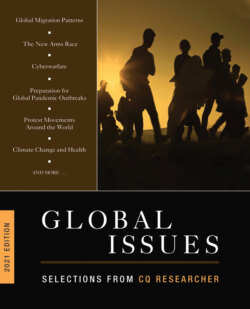Читать книгу Global Issues 2021 Edition - Группа авторов - Страница 31
На сайте Литреса книга снята с продажи.
Modern Meddling
ОглавлениеIn the early 20th century, the British and Russian empires targeted Persia in their “Great Game” competition for dominance over Central Asia, forcing the Persians in 1905 to cede a sphere of influence in northern Iran to Russian control and the oil-rich south to the British. But by the end of World War I, Britain emerged as the sole colonial power in Persia.28
To secure its control over the oil fields, London offered to make Persia a British protectorate, but the Persian parliament rejected the plan. Britain withdrew its personnel from the country in 1921, after supporting a coup by Col. Reza Khan, commander of the Persian Cossack Brigade and an ardent nationalist.29
In 1925, Reza Khan became shah, or monarch, and his eldest son, Mohammad Reza, heir to the throne. Shah Reza took the surname Pahlavi, establishing his new dynasty. In 1935, at the shah’s behest, the parliament changed the country’s name from Persia to Iran.30
Shah Reza pursued a vigorous modernization campaign and sought closer relations with Nazi Germany, which, unlike Britain and Russia, had not meddled in Iranian affairs or occupied its territory. When World War II began, Reza declared neutrality.31 But British and Soviet forces occupied Iran in 1941 to secure the Trans-Iranian Railroad for carrying critical British and U.S. military aid from India to the Soviet Union. The British remained suspicious of Shah Reza’s pro-German sympathies and forced him to abdicate, putting his pro-British son on the throne.
Middle East scholars say the young shah’s willingness to assist the Allied war effort laid the foundation for Iran’s close ties with the West, particularly the United States.
